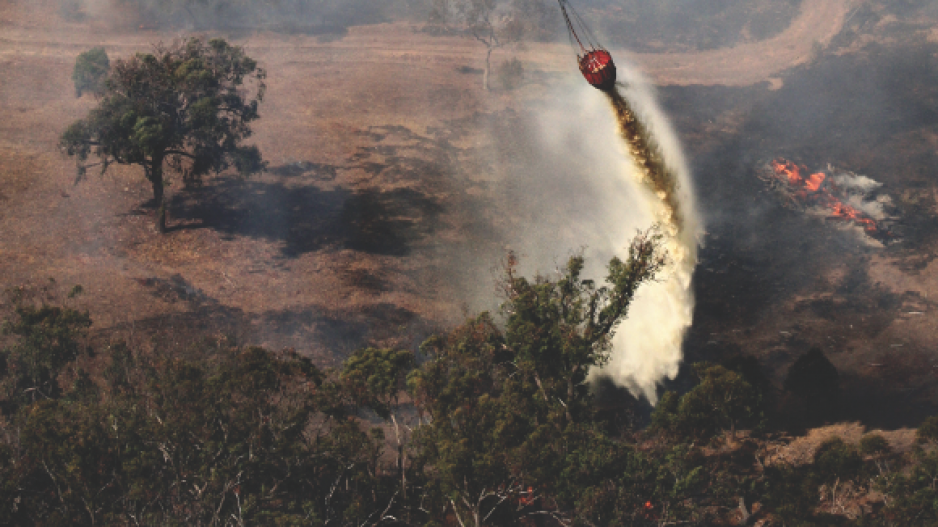By Tim Flannery
British Columbia has a reputation as one of North America’s climate action leaders. During my 2006 trip from Australia, I helped to advise then-premier Gordon Campbell, who consequently implemented B.C.’s carbon tax in 2008. My current visit brings equally exciting possibilities as I travel across Canada as a guest of Simon Fraser University’s Centre for Dialogue to meet with business leaders and elected representatives to explore new opportunities for climate action.
When we look at the numbers of climate change as an accountant might, it becomes apparent we need to take action swiftly.
Much of North America has now warmed by almost one degree Celsius over pre-industrial averages. To limit warming at 2 C – the safe upper limit to avoid the worst impacts of climate change – our remaining carbon budget is approximately 650 gigatonnes of CO2.
At the rate we’re burning fossil fuels, the world will have used up that budget by 2028.
British Columbia does not have to stretch its imagination to visualize the economic impact of out-of-control climate change.
The cost of fighting forest fires this summer alone approached $400 million, with the average area burned by fires in Western Canada expected to double by mid-century. The provincial and federal governments have spent or committed more than $2 billion in response to the mountain pine beetle infestation, which has been aided by warmer winters.
Looking into the future, the cost of protecting Metro Vancouver from sea-level rise is projected to be $9.5 billion.
The good news is that innovation is driving our economies like never before.
Our task is to ensure that this innovation is funnelled into climate-friendly infrastructure that will remain competitive in the low-carbon economy.
Vancouver, in particular, is uniquely positioned to export low-carbon goods and services to the Asian market, where China alone has committed to building more clean-energy infrastructure in the next 15 years than it has built in coal power for all of its history.
One example of this new economy is the Canadian firm Carbon Engineering, which is building a pilot plant in Squamish to capture carbon dioxide from the atmosphere and turn it into fuel.
Another is the electric vehicle, which is poised to transform our roadways, with battery costs expected to drop by 30% in the next five years as Tesla ramps up production in its new “gigafactory.”
Depending on the price of oil, these vehicles could become competitive with gas-powered cars.
Driverless versions of electric vehicles are under development and will add to the disruption inevitably felt by petrol-station owners, mechanics and taxi drivers.
Renewable energy will soon create similar disruption in the energy industry.
The manufacturing costs of solar panels have decreased by 80% in the past five years, and the cost of wind energy is predicted to fall by 50% due to technology advances, such as gearless turbines and
3D-printed parts.
The result will be for traditional consumers to produce their own renewable energy, which remains economical at smaller scales. The same electric vehicles that transform our roads will act as battery storage for this wave of renewable energy, allowing households and businesses to buy low and sell high.
The world is quickly catching up to and, in some cases, surpassing B.C.’s climate policies. Failure to act could lead to the types of carbon bubbles warned of by Standard & Poor’s in its 2014 report, where carbon-emitting assets risk losing their value after international agreements render them unusable.
With the correct government policies and economic signals, however, B.C. entrepreneurs are positioned to help drive the innovation required to remain competitive in a disruptive marketplace.
The economy is changing. British Columbia now has an opportunity to remain ahead of the curve. •
Tim Flannery is in Canada to receive SFU’s 2015 Jack P. Blaney Award for Dialogue and launch his latest book, Atmosphere of Hope.
To comment on this article, visit here.




